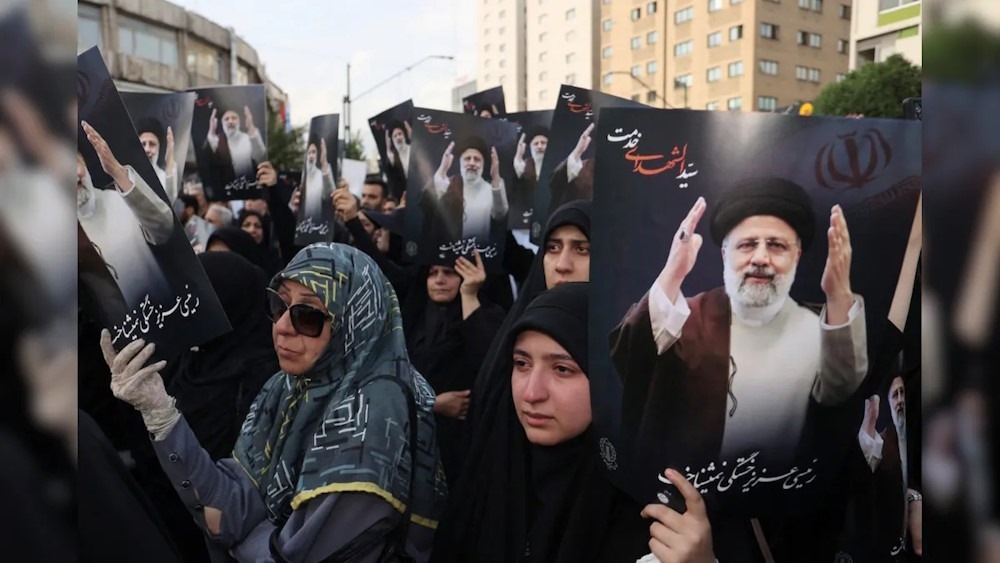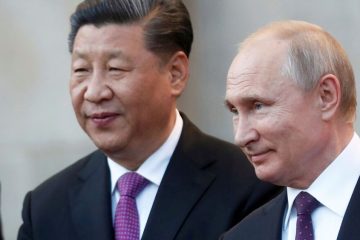Iran succession issues following the death of Raisi

The passing of Iranian President Ebrahim Raisi has sent shockwaves through the country’s political landscape, leaving many uncertain about the future of both the presidency and the influential role of the supreme leader.
Raisi, who tragically passed away in a helicopter accident over the weekend alongside Iran’s foreign minister, was widely regarded as a potential successor to the esteemed Ayatollah Ali Khamenei. With Ayatollah Khamenei’s advanced age of 85 and a history of health issues, Raisi’s untimely demise leaves a void in the potential leadership succession. There is no clear successor in the public eye.
According to Iran’s constitution, a fresh round of national elections must take place within 50 days in order to select a new president. Amidst a regional conflict with Israel and growing domestic unrest fueled by economic woes, Iran’s leaders are now facing a crucial vote.
Khamenei attempted to downplay the potential for any major disruptions on Sunday. “There is no cause for concern or unease, as the smooth functioning of the country’s administration will remain intact,” he stated on X.
Raisi’s passing has sparked increased speculation regarding potential contenders for the country’s highest positions. Two individuals who are being considered as potential candidates are Mojtaba Khamenei, 54, the son of Khamenei, and Alireza Arafi, 67, a member of the Assembly of Experts, the body responsible for choosing a new supreme leader.
The rise of Mojtaba would contradict the beliefs of Ayatollah Ruhollah Khomeini, the visionary behind the Islamic Republic, who equated hereditary rule with the unjust monarchy that was overthrown during the 1979 revolution. Last year, Khamenei himself expressed his view that a hereditary government goes against Islamic principles.
The Iranian leadership maintains a discreet silence when it comes to discussing potential successors, creating an atmosphere of intense speculation surrounding the question of who will assume control of the country after Khamenei’s passing.
In 1989, there was a rare occurrence in the country when Khamenei took over as the new supreme leader, succeeding Khomeini. Khamenei was chosen by a select group of individuals who had earned the trust of Khomeini. His appointment was revealed to the public only after the decision had been made.
The Iranian president holds the position of the country’s second-in-command. In the past, presidents had some leeway to pursue their personal agendas and cater to the needs of their constituents. However, in Iran, the supreme leader holds the highest political and religious authority, with the ultimate power to make all significant decisions.
Prior to his passing in 2017, the late president Hashemi Rafsanjani, who played a crucial role in the selection of Khamenei in 1989, proposed the idea of replacing the supreme leader position with a leadership council. This suggestion has sparked debate among experts, with some suggesting that it could potentially enhance the power of Iran’s Islamic Revolutionary Guard Corps, the esteemed military unit responsible for safeguarding the system from both internal and external threats.
Western governments are closely monitoring Iran’s activities, particularly their support for Hamas in Gaza and their direct conflict with Israel. The recent missile barrage has raised concerns, as have the frequent comments by Iranian officials regarding the possibility of pursuing a nuclear weapon.
Raisi has a strong allegiance to Khamenei and is known for his hardline stance. Throughout his career, he has utilized the legal system and security forces to suppress any form of dissent. Khamenei found his predictability to be quite appealing, as he played a significant role in orchestrating Raisi’s ascent to the highest ranks over the last ten years.
His passing is not expected to alter Iran’s domestic or foreign policy, including Tehran’s nuclear program or its support for militias in the Middle East that oppose Israel and U.S. interests. The determination of policies concerning Iran’s national security is primarily influenced by the two main power centers in the country: the office of the supreme leader and the Revolutionary Guard.
“Raisi’s role as president did not grant him ultimate decision-making power in Iran,” stated Dina Esfandiary, an Iran expert and senior advisor for the International Crisis Group. However, his passing comes at a challenging moment for Iran, as it grapples with internal and external unrest. This presents a significant challenge for the government, as it must now prioritize the task of ensuring a smooth transition and holding elections.
There were speculations about Raisi’s potential presidency, suggesting that he could serve as a suitable candidate for the Revolutionary Guard to exert their influence. This was attributed to his perceived lack of personal ambition and political experience. Some observers theorized that his presidency was a trial period, an effort to establish a strong support among the public before taking on the highest position of power. Khamenei previously served as president before assuming the role of supreme leader.
Mojtaba, the son of the supreme leader, may not have an official position in Iran, but his influence is widely recognized in the intelligence apparatus and the Basij, a paramilitary group affiliated with the Revolutionary Guard, which has been involved in the suppression of public protests. The selection of those ties has sparked controversy, especially among reformists and moderates. His rise to the position of supreme leader has the potential to create divisions within the country’s political elite.
Arafi, a potential successor to Khamenei, is not as widely recognized, but he has occupied several esteemed religious roles since the early 2000s. Following his selection by Khamenei to lead the Al-Mustafa International University, the primary institution utilized by Iran to disseminate Shiite teachings globally, Arafi assumed the role of Friday prayer leader in the religious hub of Qom. He currently holds the prestigious position of director of all Islamic seminaries in Iran, a highly influential religious role within the country.
It is crucial for Khamenei to unite Iranians and maintain stability for the future.
According to Mehrzad Boroujerdi, an Iran expert at Missouri University of Science and Technology, the avoidance of additional destabilization before the succession is a top priority for Khamenei. His intention is to communicate that the stability of the regime does not rely on individuals beneath him.
According to the constitution, Mohammad Mokhber has been appointed as caretaker president by Khamenei, marking a significant milestone in the country’s history. On Monday, a three-man council comprising the vice president, the head of the judiciary, and the speaker of parliament convened to kickstart the process of organizing elections within a span of 50 days.
The upcoming polls pose a formidable challenge for the leadership, as they have always regarded high voter participation as a crucial indicator of their legitimacy. Raisi’s election in 2021 saw a disappointingly low turnout, reflecting the widespread apathy among Iranians who felt there was a lack of genuine options on the ballot. Unfortunately, this year’s parliamentary elections witnessed an even lower level of participation.
Prior to assuming the presidency, Raisi, who was educated by Khamenei, had an extensive legal career as a prosecutor. He gained recognition among Iranians for his involvement in a 1988 commission that sentenced numerous political prisoners to death.
During his presidency, he implemented strict measures to suppress the widespread protests that broke out in 2022 following the tragic death of a young woman in police custody. This incident presented one of the most significant tests to the Iranian leadership since the revolution of 1979.
“The importance of the presidency is closely tied to popularity, something that Raisi completely lacked,” stated Ali Fathollah-Nejad, the director of the Center for Middle East and Global Order, a think tank based in Berlin. He may be considered one of the least influential presidents in the history of the Islamic Republic.
Raisi’s potential departure may lead to a scramble for political influence among the conservative factions in positions of authority.
“Given the apparent restrictions on reformist or moderate candidates by Khamenei and the Guardian Council, it is likely that we will witness an escalation in competition among conservative factions,” stated Boroujerdi, an expert from the Missouri University of Science and Technology.



